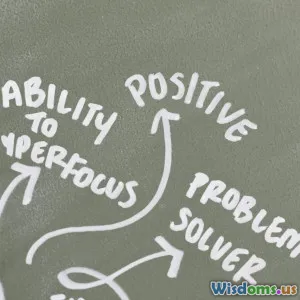
Unlocking Your Potential for Personal Growth
5 min read Discover effective strategies to enhance personal growth and unlock your true potential through psychology and self-development techniques. (0 Reviews)
Unlocking Your Potential for Personal Growth
Personal growth is a lifelong journey that involves self-discovery, goal setting, and continuous improvement. Unlocking your potential requires understanding your capabilities, embracing challenges, and cultivating a mindset geared towards growth. This article delves into the psychology of personal development, offering insights and practical strategies to help you realize your full potential.
Understanding Personal Growth
Personal growth is the process of developing your capabilities and potential. It encompasses various aspects of your life, including emotional, intellectual, and social dimensions. According to psychologist Abraham Maslow, personal growth is linked to self-actualization, which refers to the realization of an individual's potential.
The Importance of Self-Awareness
Self-awareness is the first step towards personal growth. It involves understanding your strengths, weaknesses, values, and motivations. Engaging in self-reflection can help you identify areas for improvement and set realistic goals.
- Journaling: Keeping a journal can enhance self-awareness by providing a space to express thoughts and feelings. Reflecting on experiences can reveal patterns in behavior and thought processes.
- Feedback from Others: Seeking constructive feedback from trusted friends or mentors can offer new perspectives on your strengths and areas for growth.
Setting SMART Goals
Once you have a clearer understanding of yourself, the next step is to set SMART goals—Specific, Measurable, Achievable, Relevant, and Time-bound. This framework allows you to create a structured plan for your personal development.
- Specific: Clearly define what you want to achieve. Rather than saying, “I want to be healthier,” specify, “I will exercise for 30 minutes five times a week.”
- Measurable: Track your progress to stay motivated. This could involve keeping a log of your workouts or meals.
- Achievable: Set realistic goals that challenge you without being overwhelming.
- Relevant: Ensure your goals align with your values and long-term aspirations.
- Time-bound: Set deadlines to create a sense of urgency and commitment.
Embracing a Growth Mindset
Psychologist Carol Dweck introduced the concept of a growth mindset—the belief that abilities and intelligence can be developed through dedication and hard work. This mindset fosters resilience and a love for learning. Here’s how to cultivate a growth mindset:
- Embrace Challenges: View obstacles as opportunities to learn rather than insurmountable barriers.
- Learn from Criticism: Use feedback as a tool for growth instead of taking it personally.
- Celebrate Efforts, Not Just Results: Recognize the hard work you put in, even if the outcome isn’t what you expected.
Building Resilience
Resilience is crucial for personal growth. It enables you to bounce back from setbacks and maintain your motivation. Here are ways to enhance your resilience:
- Develop a Support System: Surround yourself with positive and supportive individuals who encourage your growth.
- Practice Self-Care: Prioritize your physical and mental health by engaging in activities that rejuvenate you, such as exercise, meditation, or hobbies.
- Stay Flexible: Adaptability is key in facing life's challenges. Being open to change allows you to navigate through difficulties more effectively.
Continuous Learning
Personal growth is a lifelong endeavor. Engage in continuous learning by:
- Reading: Explore books and articles related to psychology, self-development, and personal effectiveness.
- Taking Courses: Consider enrolling in online courses or workshops that align with your growth goals.
- Networking: Attend seminars and conferences to connect with like-minded individuals and expand your knowledge.
Conclusion
Unlocking your potential for personal growth is a rewarding journey that involves self-awareness, goal setting, mindset shifts, resilience, and continuous learning. By applying these strategies, you can foster a fulfilling life that aligns with your true self and aspirations. Remember, personal growth is not a destination but a continuous process of becoming the best version of yourself.
Rate the Post
User Reviews
Popular Posts



















